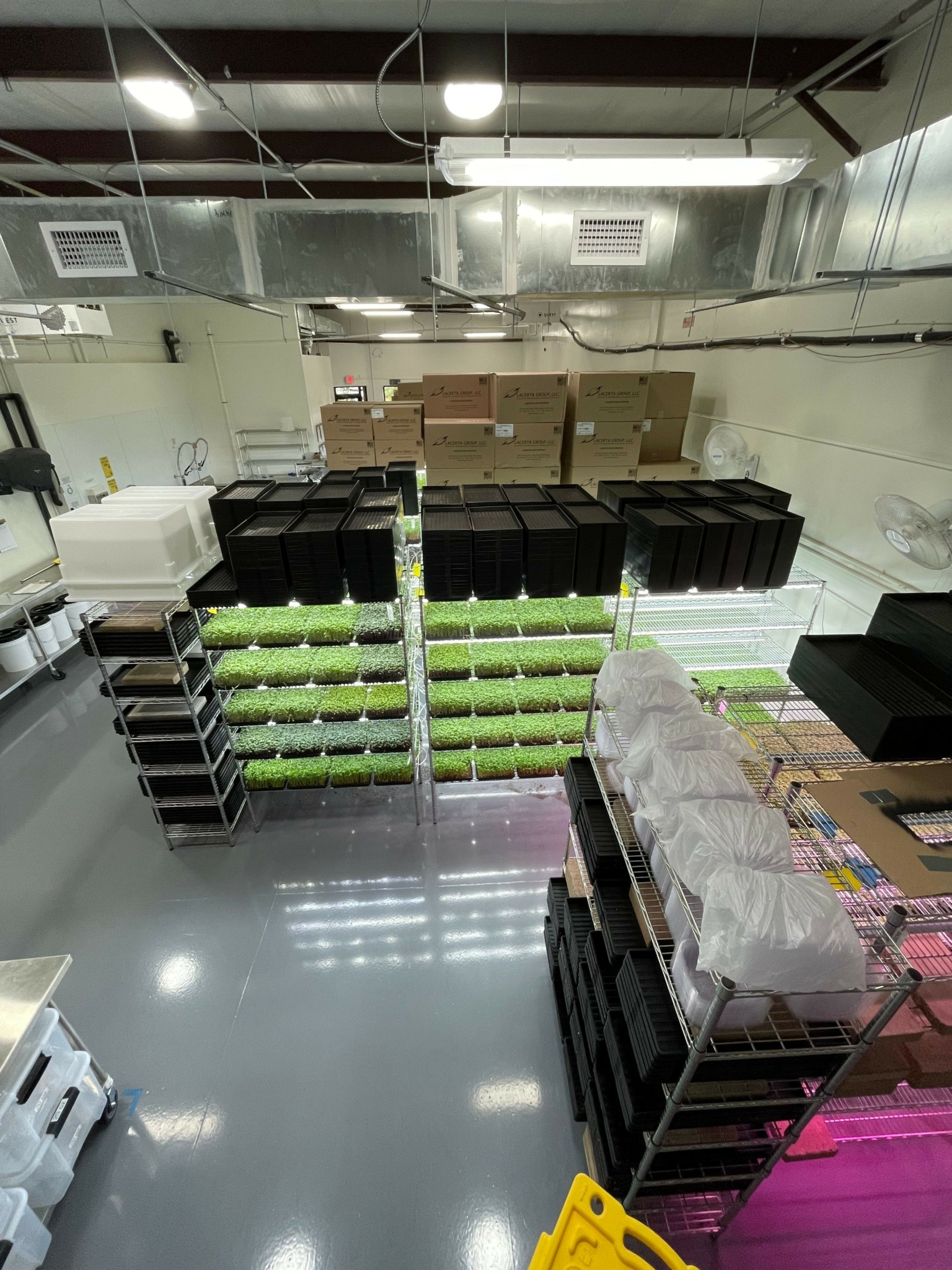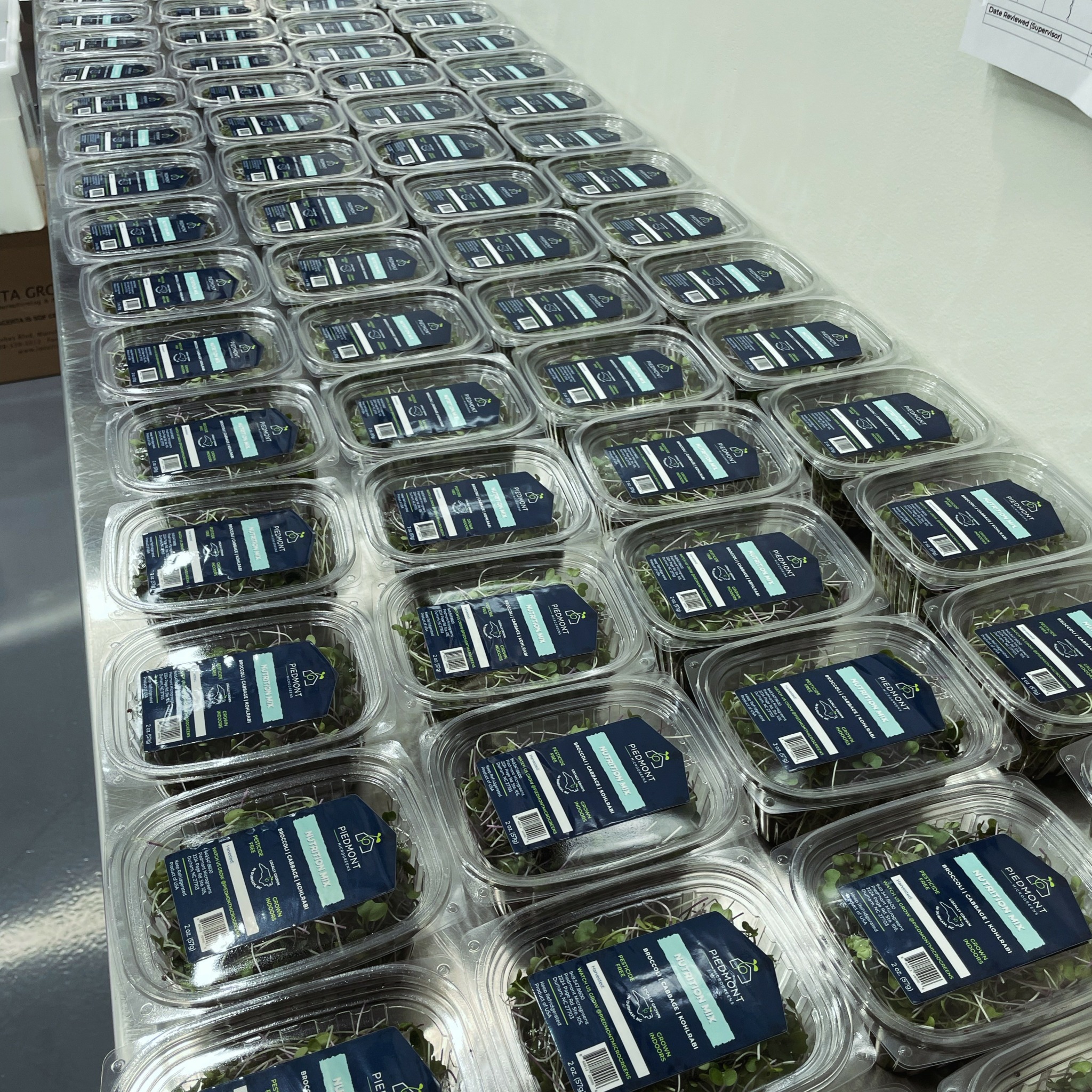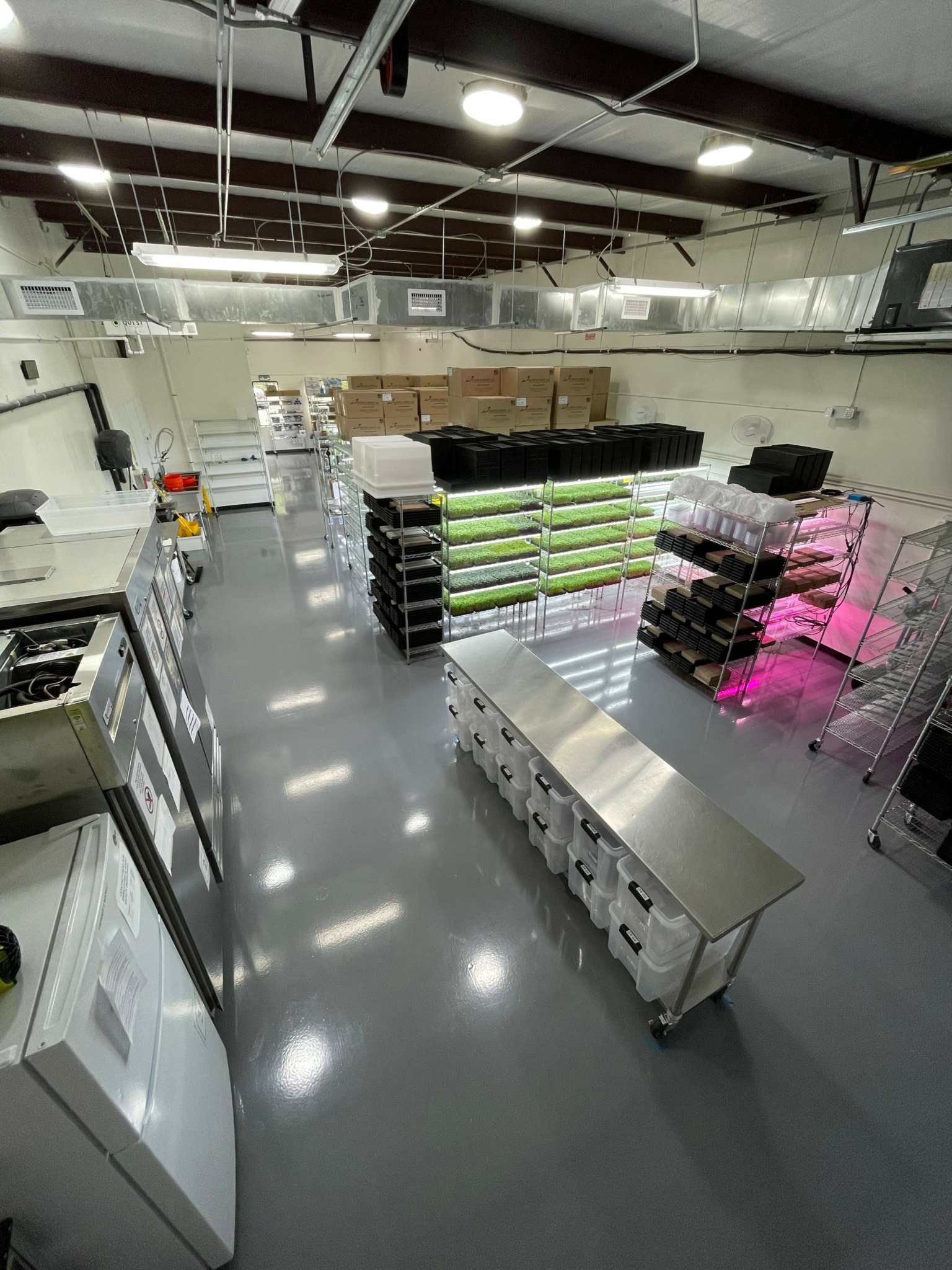Alright – so today we’ve got the honor of introducing you to Garrett Corwin. We think you’ll enjoy our conversation, we’ve shared it below.
Garrett, thanks for taking the time to share your stories with us today How did you scale up? What were the strategies, tactics, meaningful moments, twists/turns, obstacles, mistakes along the way? The world needs to hear more realistic, actionable stories about this critical part of the business building journey. Tell us your scaling up story – bring us along so we can understand what it was like making the decisions you had, implementing the strategies/tactics etc.
People often assume there’s a big leap between starting a business and scaling it — some secret growth hack or breakthrough strategy. In my experience, scaling Piedmont Microgreens wasn’t fundamentally different from landing our very first customer.
That first sale came from a cold call — I picked up the phone, introduced myself, dropped off a sample, and followed up until the chef gave us a shot. And that’s exactly how we scaled.
There was no viral moment. No trendy social media campaign. Just a lot of cold outreach, thoughtful follow-up, and doing what we said we’d do. Every new restaurant came from the same process: identify leads, make the call, deliver samples, follow up, deliver consistently.
What changed over time wasn’t the what, but the how well we executed. We got tighter on our pitch. We improved our CRM systems and follow-up cadence. We learned how to listen better to chefs, anticipate their needs, and make their lives easier. We built trust, one delivery at a time.
Even when we started selling to 50+ restaurants, it still came down to the same fundamental actions: show up, check in, solve problems quickly, and keep the quality high.
Scaling was just discipline and repetition. We didn’t need to reinvent the wheel — we just needed to push it uphill, one customer at a time.
Not every sale came from cold outreach. Some were the result of long-term relationship-building and slow-burning trust — like our eventual partnership with a large wholesaler.
We first met their team years ago at a local event. They loved our product, loved our mission, and told us — multiple times over the next few years — “We want to buy from you, but we can’t until you’re GAP certified.” That wasn’t a small ask.
At the time, we were growing in a modest space without the infrastructure required for GAP certification — no commercial wash/pack area, no controlled access, no food safety program at scale. Although demand was present, we were unable to meet the compliance requirements. And the wholesaler couldn’t budge on that.
But we didn’t walk away. We kept showing up — to events, trade shows, networking meetups. Every time we ran into them, we’d give updates, stay top-of-mind, and reaffirm our intent to get there.
Fast forward a few years and we finally found the right commercial space. We passed our audit and then the first thing we did was call the wholesaler.
They remembered us. And this time, we could say yes. That door didn’t swing open overnight — it took years of persistence, reinvestment, and infrastructure growth to earn our seat at the table.
Scaling isn’t just about getting more customers. It’s about growing into the kind of business that’s ready when the right customer says yes.
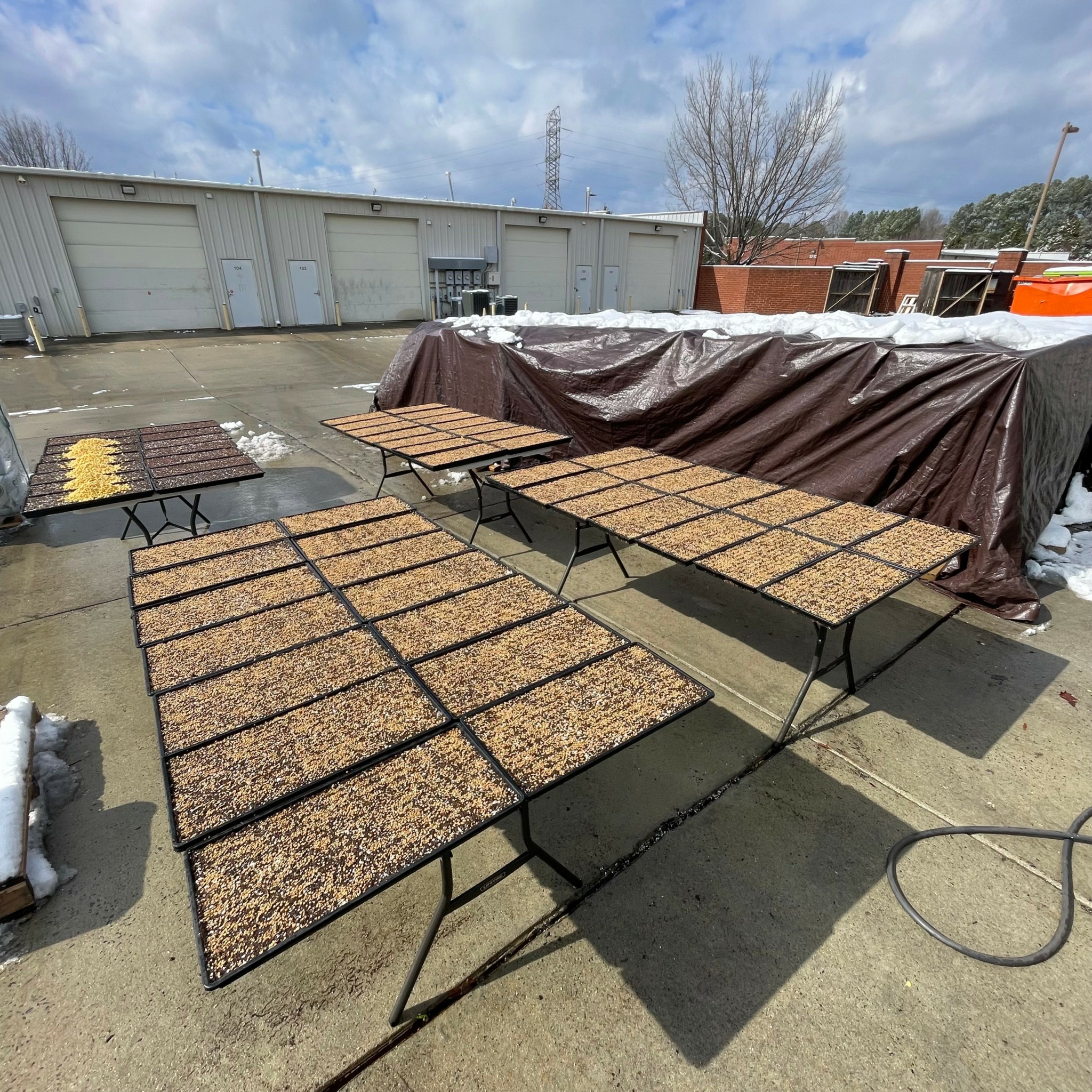
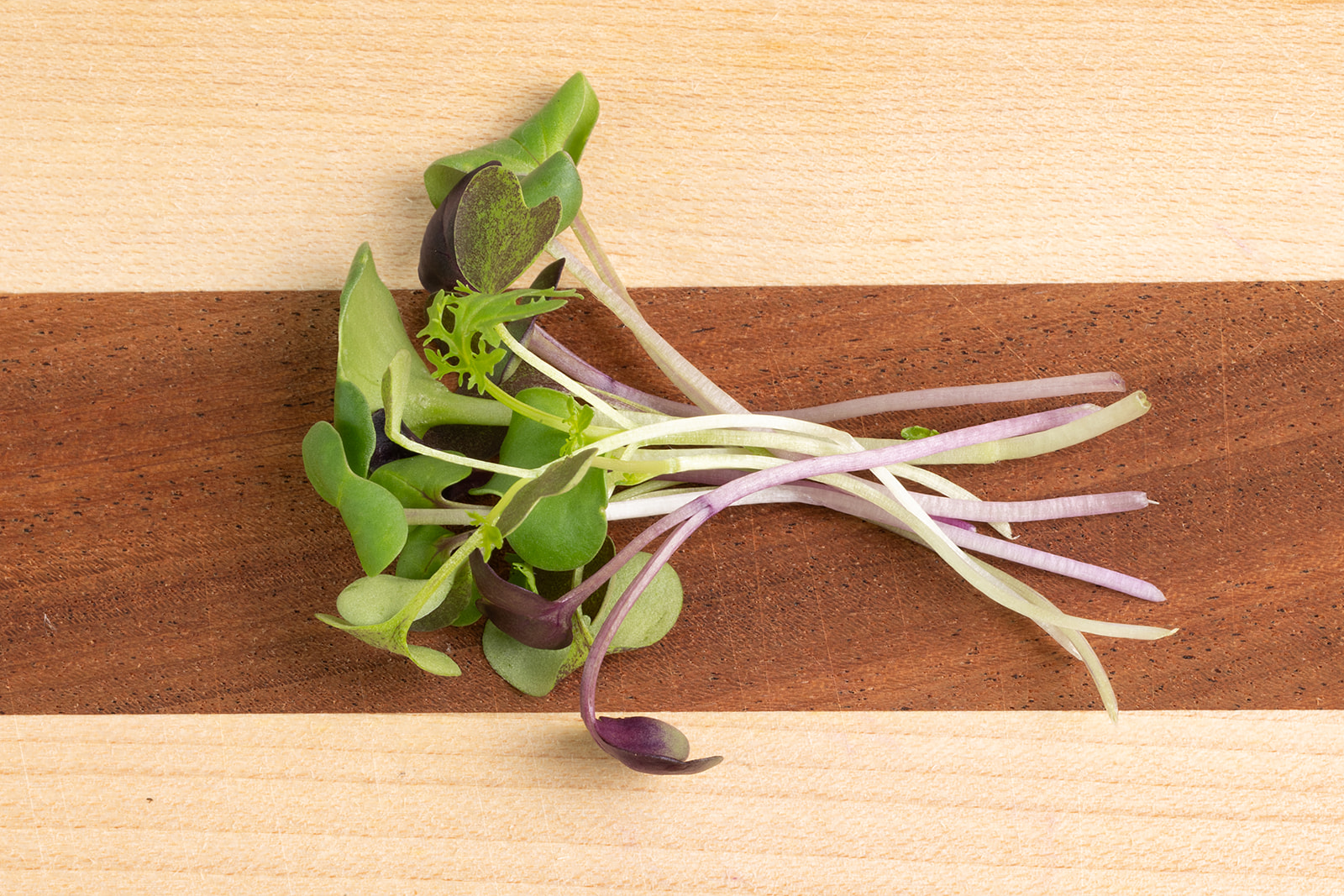
Garrett, love having you share your insights with us. Before we ask you more questions, maybe you can take a moment to introduce yourself to our readers who might have missed our earlier conversations?
I’m Garrett Corwin, founder of Piedmont Microgreens, an indoor farm based in Durham, North Carolina. We grow fresh, nutrient-dense microgreens and deliver them weekly to over 50 of the area’s top restaurants, as well as to chefs, wellness practitioners, and consumers who care about flavor, freshness, and food integrity.
Like many founders, I didn’t come from a long line of farmers — I came to this work because I cared about food, health, and building something meaningful with my own hands. I was fascinated by how something as small as a sprout could pack such incredible nutrition, color, and flavor. And I saw an opportunity to serve chefs who wanted local, consistent, high-quality produce without relying on fragile supply chains.
What started with a few trays under lights in a spare room quickly grew into something bigger — a full-fledged farm, team, and now a commercial facility that allows us to meet food safety standards and wholesale demand.
At Piedmont Microgreens, we specialize in growing premium microgreens — sunflower, pea shoots, radish, broccoli, cilantro, basil, and custom blends — all harvested to order and delivered with care. We don’t carry inventory, and we don’t outsource. Everything is grown, packed, and delivered by our team in Durham.
We primarily serve:
Restaurants and chefs, who use our microgreens for garnish, flavor, and texture.
Wellness practitioners and food-as-medicine programs, who value the dense nutrient profile.
Retailers and distributors, who want a dependable local source with GAP certification and high production standards.
What sets us apart?
We’re farmers with a business mindset. We’ve built systems, not just a grow room. That allows us to be dependable and scalable — two things many small farms struggle with.
We’ve earned trust. From being invited into kitchens to being considered by major wholesalers, we’ve proven we can deliver — literally and figuratively.
We invested in food safety early. Many farms avoid certification because it’s hard. We embraced it, moved into a commercial facility, and became Harmonized GAP certified — opening the door to new partnerships.
We care deeply about our team and culture. I built the business to run with people, not on people. That mindset reflects in how we hire, communicate, and operate.
I’m most proud of our team of incredible farmers who run a tight ship every single week. They grow beautiful, clean, consistent products — and they do it with care, discipline, and pride. Whether it’s nailing harvest timing, dialing in seeding rates, or maintaining pristine food safety standards, they show up with a level of ownership that’s rare in any business, let alone farming. This company runs because of them — full stop.
Buying from local farms and farmers’ markets is probably the single best thing you can do for the environment. Farmers — real, local farmers — care so fucking much about their animals, their plants, their land, and the products they grow. That care trickles down into everything: how they spend money, where they source inputs, how they treat their soil or livestock, and how they contribute to their community.
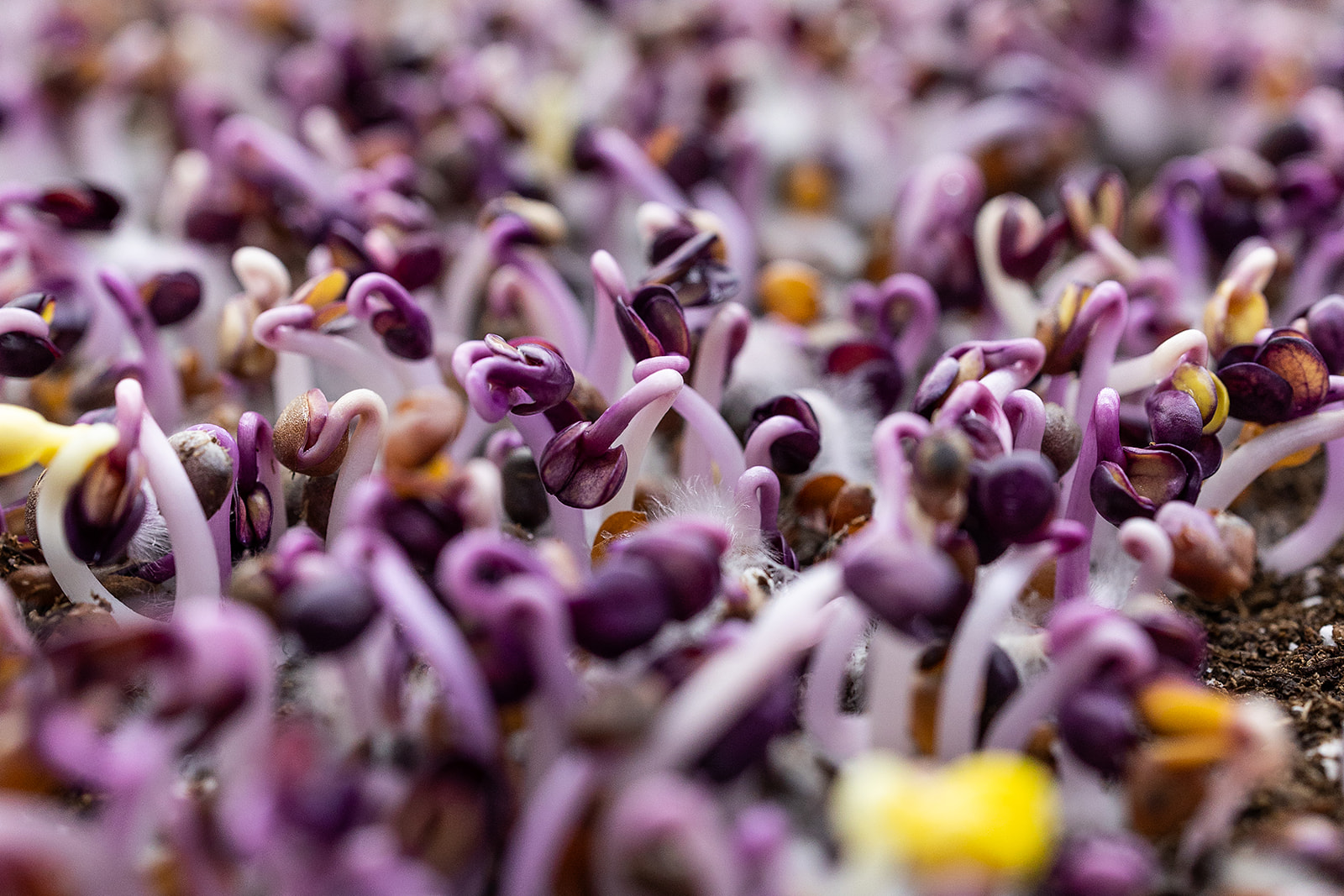

Can you talk to us about your experience with buying businesses?
Yes — a few years into running Piedmont Microgreens, I acquired the customer list from a nearby farm called Carolina Microgreens.
They were a small operation based in a neighboring city with overlapping delivery zones. It was run by a husband-and-wife duo who both worked full-time at UNC and farmed microgreens on the side. One day, they reached out and we met for a beer to talk shop — farming, small business, life. That’s when they shared that they were planning to shut down their farm and pivot fully into real estate investing. They asked if I’d have any interest in acquiring the business.
I said yes, but the tricky part was evaluating the offer.
Carolina Microgreens had a solid little operation — one farmers’ market, around a dozen restaurant accounts, a part-time employee, and a basic farm setup. But from Piedmont Microgreens’ perspective, I didn’t need most of that. We already had our own growing space (in my garage at the time), a reliable team, and enough equipment. What we did want was the customer base — the relationships, goodwill, and delivery routes that made strategic sense for us.
The upside was that we didn’t need to buy equipment or take on overhead that wouldn’t add value. The downside was having to offer a price that reflected that — essentially pennies on the dollar. I offered a nominal amount that mostly covered their costs of shutting down: moving, disposal, and cleanup.
Thankfully, they understood. They made warm introductions to each of their clients, and the transition went smoothly. That acquisition gave us a meaningful bump in accounts and market share — and it was a great example of a win-win: they exited cleanly, and we grew in a smart way.
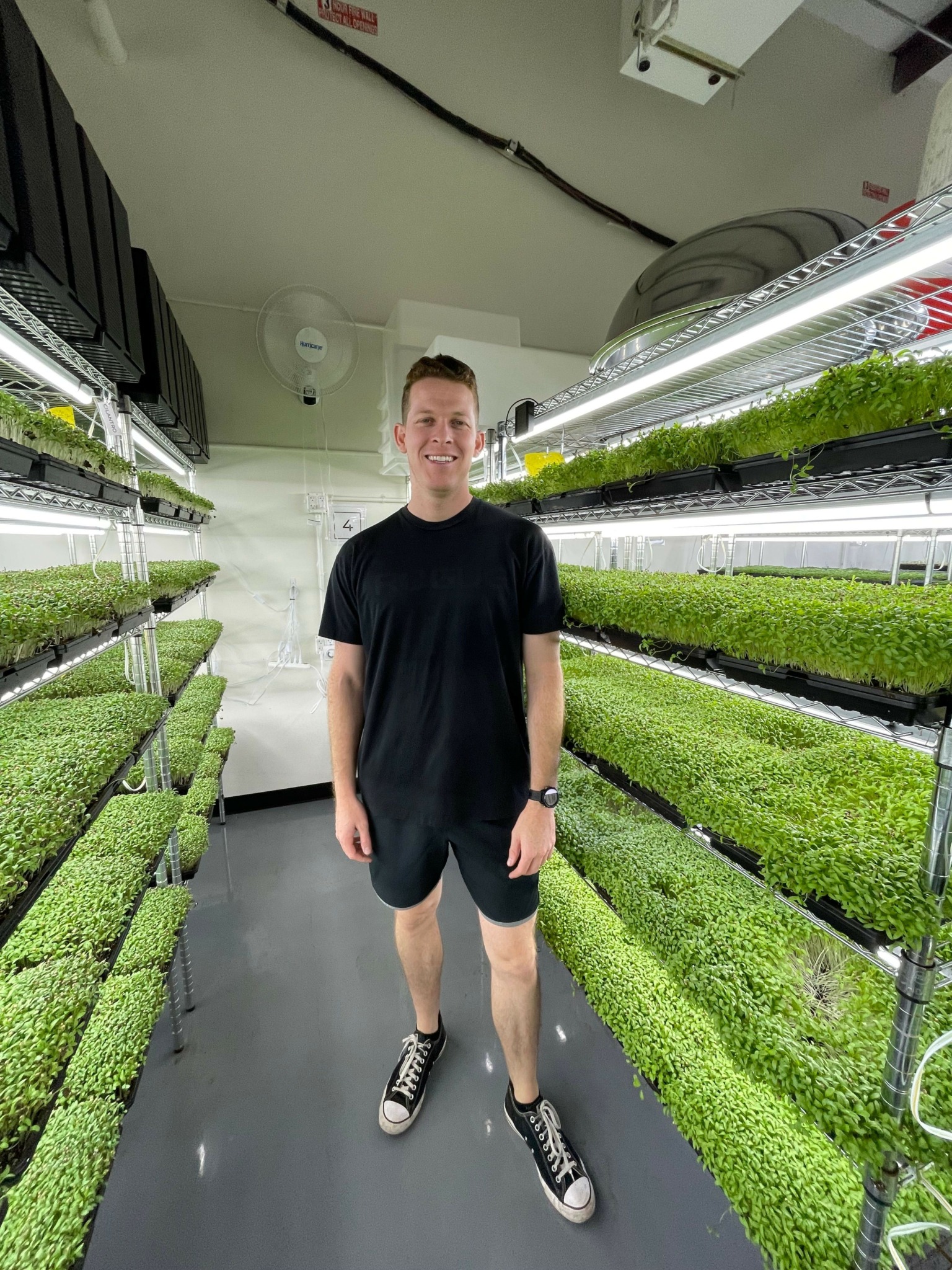
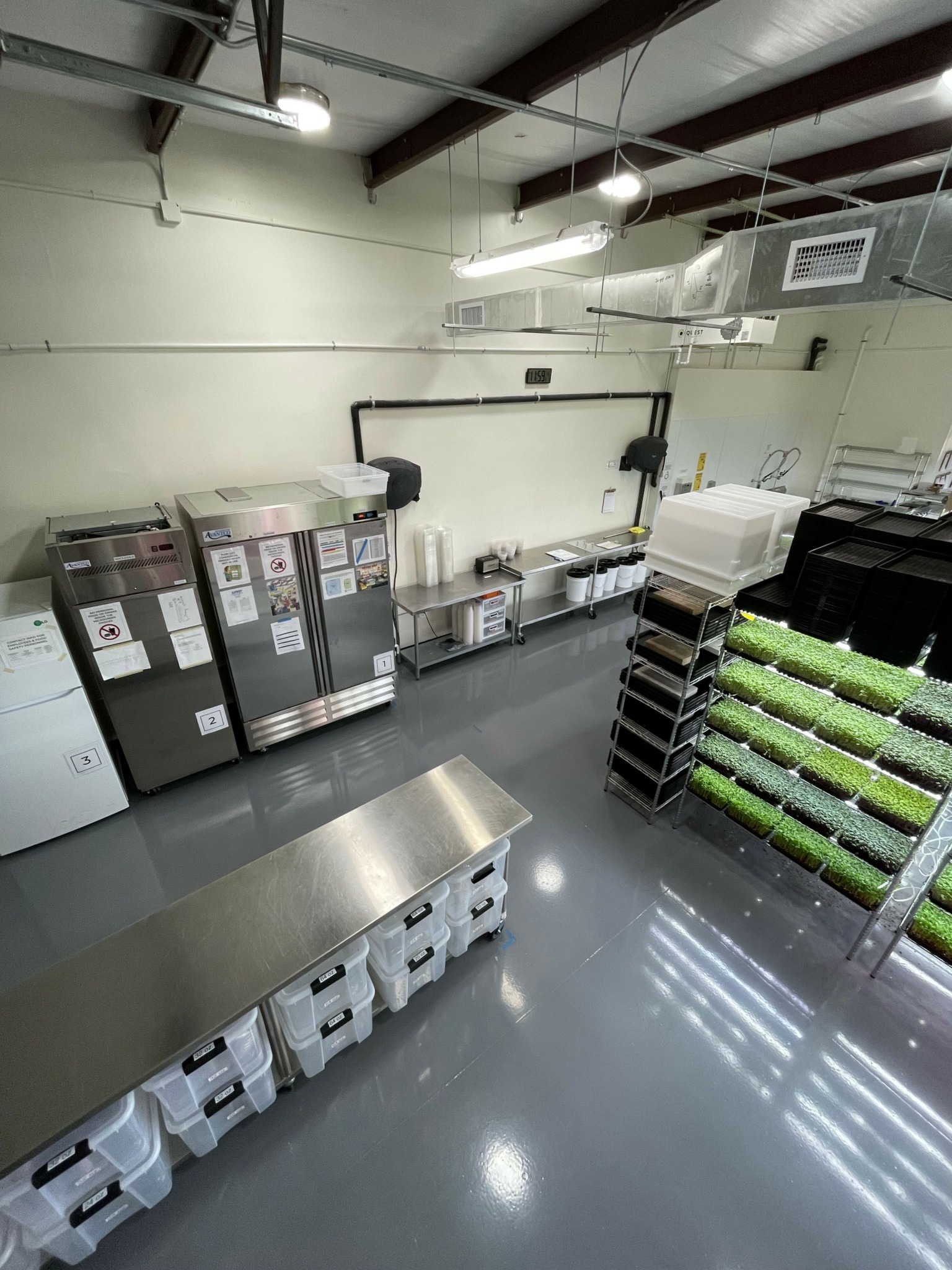
Have any books or other resources had a big impact on you?
Absolutely — the biggest influence on how I think about business operations is Lean Thinking, specifically the Toyota Production System (TPS) and practices like 5S.
A lot of people think Lean is only for manufacturing, but it’s incredibly effective in brick-and-mortar businesses — especially those that resemble light manufacturing, like indoor farming. In many ways, microgreen farming is a production line, just with seeds, trays, and harvest bins instead of car parts. That’s why we embraced Lean early at Piedmont Microgreens.
Instead of creating dense SOPs or training manuals, we’ve built hundreds of micro-systems across the farm — simple, intuitive tools that support autonomy and eliminate confusion for new team members.
A couple examples:
Let’s say a new employee sees a tray of microgreens and isn’t sure what crop it is. Instead of stopping to ask someone, they can scan a QR code posted on the wall. That takes them to a visual gallery of all our crops at different growth stages, so they can identify it themselves.
By the harvest table, we have a posterboard with velcro cards showing our 5 packaging sizes and which crops go in which containers — with corresponding label info. It’s visually clear, immediately useful, and easy to update by just moving cards around.
These systems reduce questions, reduce mistakes, and reduce onboarding time — but more importantly, they create clarity and independence for our team.
And we don’t just set these systems once — we keep improving them.
Every week, we carve out 15–30 minutes to these improvement sessions.
Each person walks around the farm and asks themselves one simple question:
“What annoys me about this job?”
It could be small, like:
“I hate crawling under the table to plug in the iPad charger.”
Or:
“It’s hard to tell if the rolling rack’s casters are locked because they’re rusty and hard to see.”
We bring those ideas to the group, discuss them, and fix what we can immediately.
For the charger, we zip-tied a power strip above the table so it’s within arm’s reach.
For the castors, we added green tape on the ‘unlocked’ side and red on the ‘locked’ side so it’s obvious at a glance.
These changes take minutes, cost nothing, and put the power of improvement directly in the hands of our team. That’s the heart of Lean: continuous, small improvements that remove friction and give people more pride and control in their work.
It’s not just efficient — it makes the farm a better place to work.
Contact Info:
- Website: https://www.piedmontmicrogreens.com/
- Instagram: https://www.instagram.com/piedmontmicrogreens/
- Facebook: https://www.facebook.com/piedmontmicrogreens
- Linkedin: https://www.linkedin.com/in/garrettcorwin/
